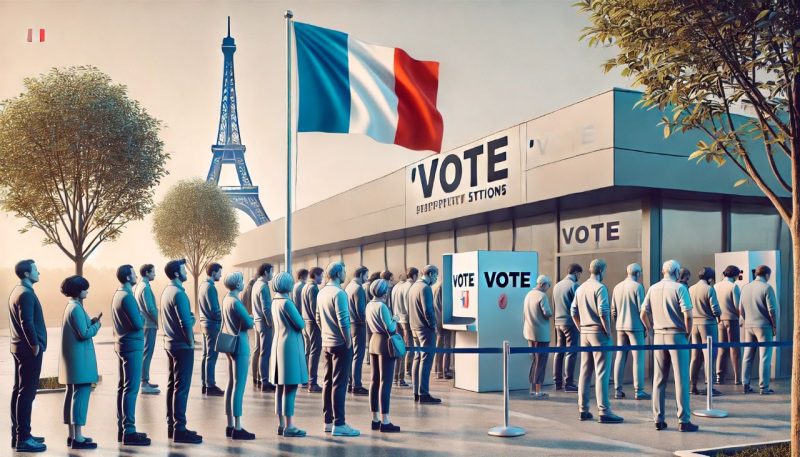
In a stunning turn of events, French President Emmanuel Macron’s political future hangs in the balance as right-wing parties, led by Marine Le Pen’s National Rally (RN), surge ahead in recent elections.
The far-right’s significant gains in the European Union elections have set the stage for a potentially transformative shift in French politics, prompting Macron to call for snap legislative elections.
Right-Wing Surge in Europe
Across Europe, right-wing parties are making substantial gains, with France at the forefront of this shift. The National Rally secured approximately 32% of the vote in the EU elections, a dramatic increase from their previous performance and more than double the vote share of Macron’s Renaissance party, which garnered just 15%. This victory has not only shaken Macron’s administration but also highlights a broader trend of rising right-wing influence across the continent.
Macron’s Strategic Gamble
In response to the far-right’s electoral success, Macron has called for snap legislative elections, a bold move aimed at clarifying the political landscape before the 2027 presidential race. This decision is seen as a high-stakes gamble, with potential outcomes ranging from the far-right gaining substantial legislative power to exposing their potential governance weaknesses ahead of future elections.
Macron’s call for new elections comes at a time of significant political tension and public dissatisfaction. Anti-right protests have erupted, reflecting the deep divisions within French society over the future direction of the country. These elections, scheduled for June 30 and July 7, are expected to be pivotal in determining whether Macron can regain control or if Le Pen’s party will further consolidate its power.
Implications for France and the EU
The implications of a far-right majority in the French parliament are profound. Should the National Rally achieve a majority, Macron would retain control over foreign and defense policies but lose significant influence over domestic affairs, including economic and security policies. This scenario would lead to a period of cohabitation, where the President and the parliamentary majority belong to different political factions, historically leading to political gridlock and policy clashes.
For the European Union, the rise of far-right parties in a major member state like France could signal a shift in the union’s policy direction, particularly on issues such as immigration, climate change, and economic regulation (POLITICO). The European People’s Party (EPP), while still the largest bloc in the European Parliament, faces the challenge of forming a stable coalition to counterbalance the influence of the far-right and maintain the EU’s centrist policies.
The Road Ahead
As France braces for these critical elections, the political landscape is set for intense battles. Key figures from both Macron’s centrist camp and Le Pen’s far-right are preparing for a showdown that could reshape French politics. Macron’s decision to call snap elections is seen as a tactical move to either solidify his position or force the far-right to reveal their potential governance flaws before the next presidential election.
The upcoming weeks will be crucial in determining whether Macron can navigate this political crisis and whether France will tilt further to the right, impacting not only national policies but also its role within the European Union. The outcome of these elections will undoubtedly be a defining moment in contemporary French and European political history.
